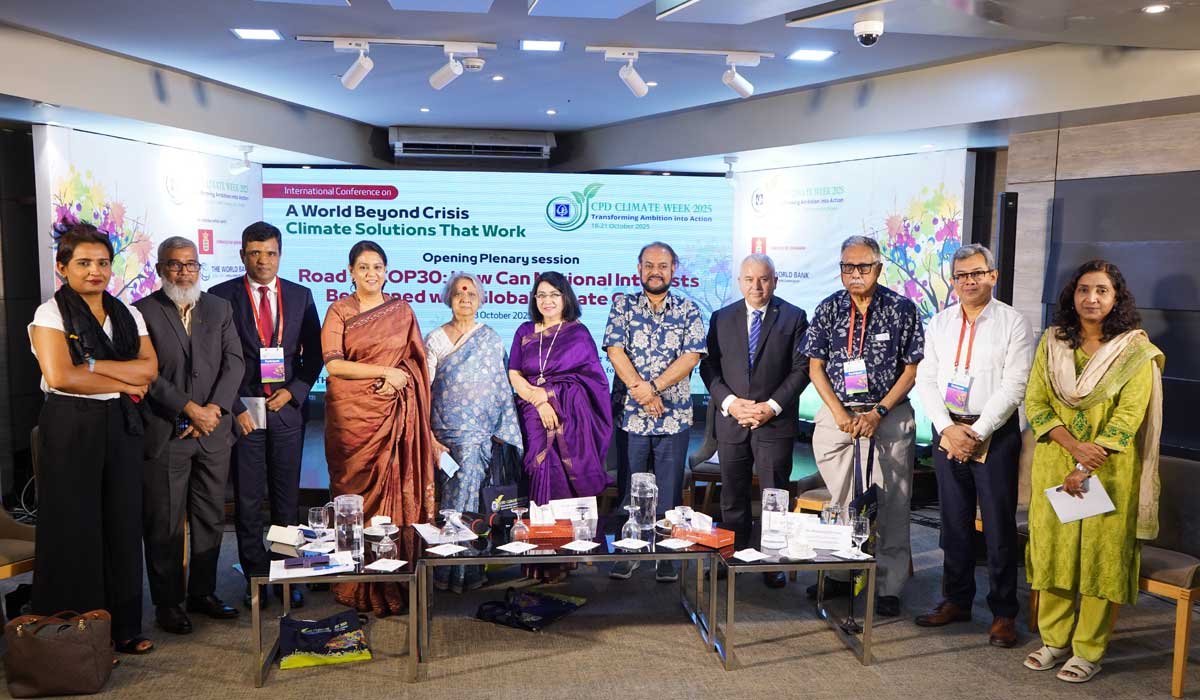
CPD Climate Week 2025 called for urgent collective action and collaborative solutions to address the escalating impacts of climate change. Held from 18-21 October 2025 in Dhaka, the event brought together policymakers, researchers, youth, civil society, and the private sector to discuss how global and national climate ambitions could be translated into fair and inclusive action.
Organised by the Centre for Policy Dialogue (CPD) in collaboration with the Embassy of Denmark in Bangladesh and the World Bank, the four-day event, under the theme ‘Transforming Ambition into Action’, featured a blend of conferences, dialogues, competitions, and exhibitions. The aim was to advance ideas on climate justice, financing, innovation, and resilience, fostering collective efforts that would shape a sustainable and equitable future.
The week began with the international conference ‘A World Beyond Crisis: Climate Solutions That Work.’ The opening plenary, ‘Road to COP30: How Can National Interests Be Aligned with Global Climate Goals?’, set the stage for discussions on aligning national priorities with global climate targets.
Following the plenary, six parallel sessions were held.
- Inaugural Session | A World Beyond Crisis: Climate Solutions That Work
- Opening Plenary | Road to COP30: How Can National Interests Be Aligned with Global Climate Goals?
- Parallel Session 1 | Operationalising NDCs in Climate Vulnerable Countries
- Parallel Session 2 | Climate and Gender: Integrating Equity in Policies
- Parallel Session 3 | Carbon Pricing and Carbon Markets in Bangladesh
- Parallel Session 4 | Climate-smart Agriculture and Food Security
- Parallel Session 5 | Climate Finance, Landscape, Policy and Governance
- Parallel Session 6 | High Level Dialogue on Achieving Debt Sustainability in the Face of Climate Change
The second day of CPD Climate Week 2025 provided a platform for young scholars and early-career professionals to present their groundbreaking research across various climate-focused streams. The discussions covered topics such as adaptation, mitigation, disaster risk reduction, and the impacts of climate change on sectors like agriculture and health.
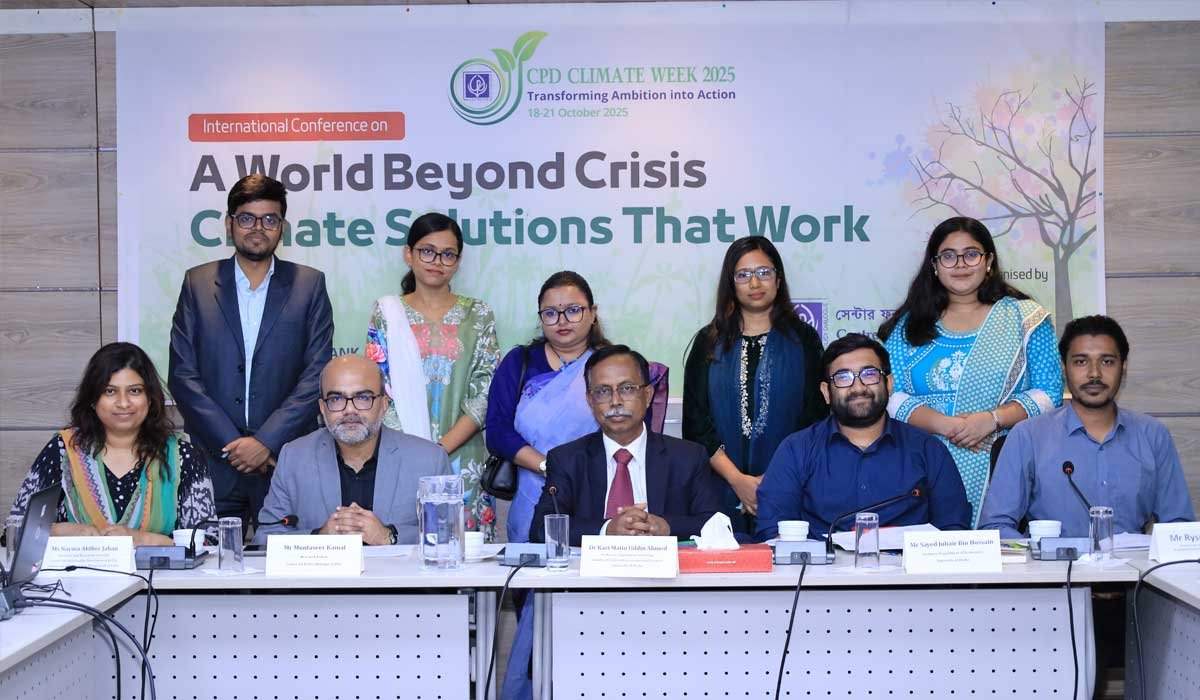
In Stream 1, Adaptation, Mitigation and Resilience, Low Carbon Transition Strategies, the best paper award went to Mr Ahnaf Shahriyar from Bangladesh University of Engineering and Technology (BUET). His paper, “Effects of Absolute Humidity on Dengue Cases in Dhaka City”, explored the links between changing climatic conditions and the rise in vector-borne diseases, offering critical insights for public health in urban settings.
Mr Emal Ahmad Hussainzad and Mr Zhonghua Gou, from Wuhan University, China, were awarded the best paper in Stream 2: Locally Led Adaptation (LLA) and Nature-based Solutions (NbS), Urban Heat Stress Management. Their research, “Two Decades of Warming: Urban Expansion and Accelerated Heat Island Effects in Kabul, Afghanistan”, examined the profound effects of urbanisation on local climates, particularly in vulnerable cities like Kabul, and suggested nature-based solutions to mitigate urban heat.
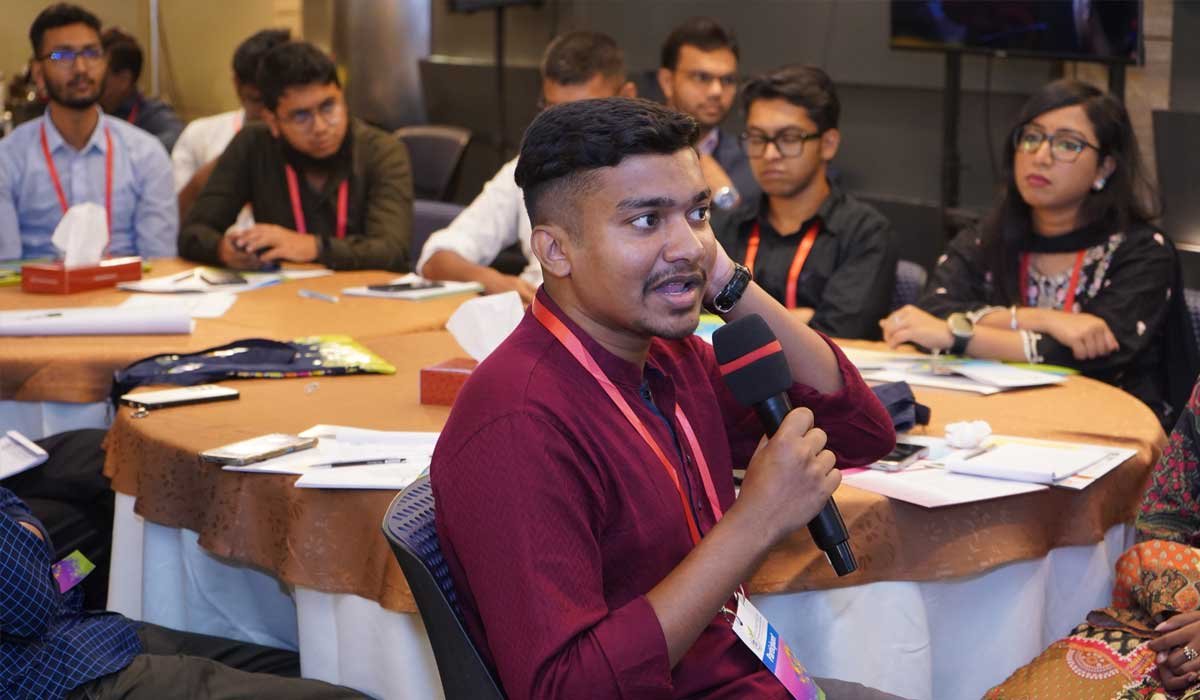
“Modelling Forest Fire Risk Using Machine Learning and Satellite Remote Sensing” was presented in Stream 3: Disaster Risk Reduction, Loss and Damage and Delivering Climate Justice. Ms Hira Saleem from the National University of Sciences & Technology, Pakistan, won the best paper award. Her research highlighted how machine learning and satellite data can predict and manage forest fire risks, a growing challenge due to climate change.
In Stream 4: Modelling Climate Risks and Socio-economic Impacts, Finance for Climate Action, Mr Towhidul Islam from Shahjalal University of Science and Technology, Bangladesh, was recognised for his paper “Modelling the Ecological Niche and Future Distribution of Aquilaria malaccensis in Bangladesh: Implications for Conservation and Climate Resilience”. This study provided important insights into how climate change could affect biodiversity, particularly the distribution of key species, and suggested measures for climate resilience.
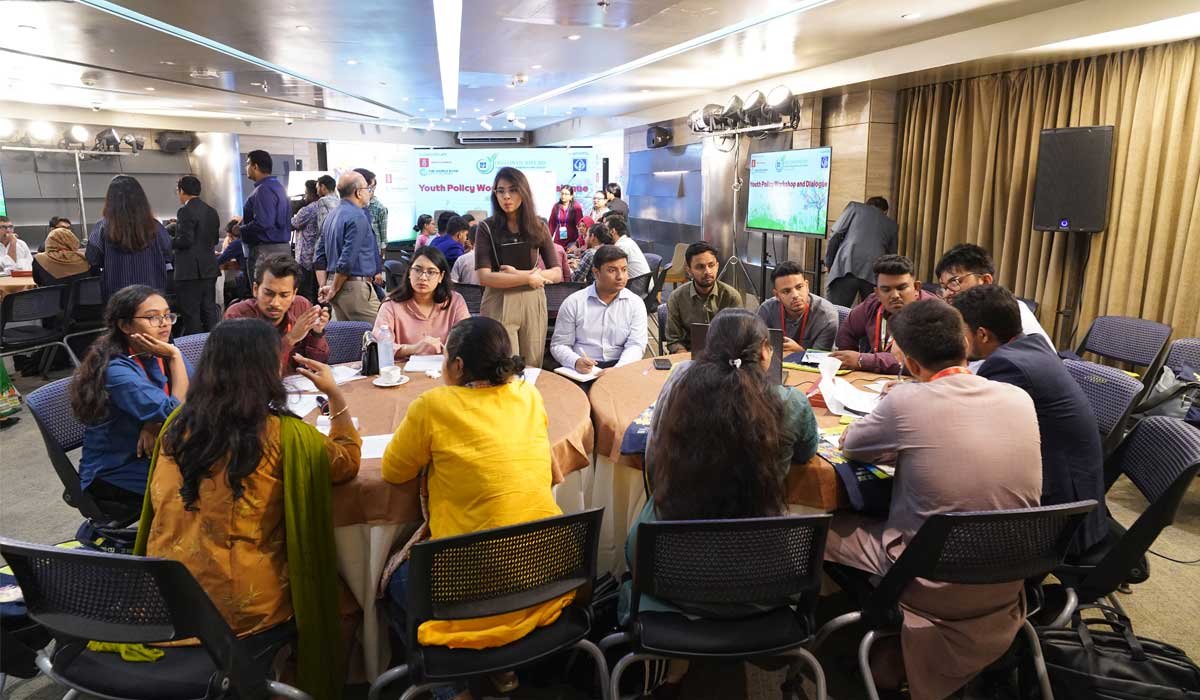
The best paper in Stream 5: Sectoral Impacts of Climate Change (e.g., agriculture, health, and livelihoods), Green Jobs Creation was awarded to Darlene Mbande Nakoma from the University of Malawi, for her paper “Weathering Change: Understanding Household Shifts in the Age of Climate and Energy Crisis”. She explored how households in Malawi are adapting to the climate crisis while facing the added challenges of energy shortages, underscoring the need for integrated solutions to these intersecting issues.
Finally, Stream 6: Advancing Green Technologies, Circular Economy Models, and Digital Solutions, Harnessing AI for Climate Resilience recognised Ms Shaharia Salim Oishee from Khulna University, Bangladesh, for her paper “Effect of Regenerative Agriculture on Climate Change Mitigation for Farmers in Khulna District.” This research highlighted how regenerative agricultural practices can serve as a tool for mitigating climate change, offering practical solutions for farmers in Bangladesh.
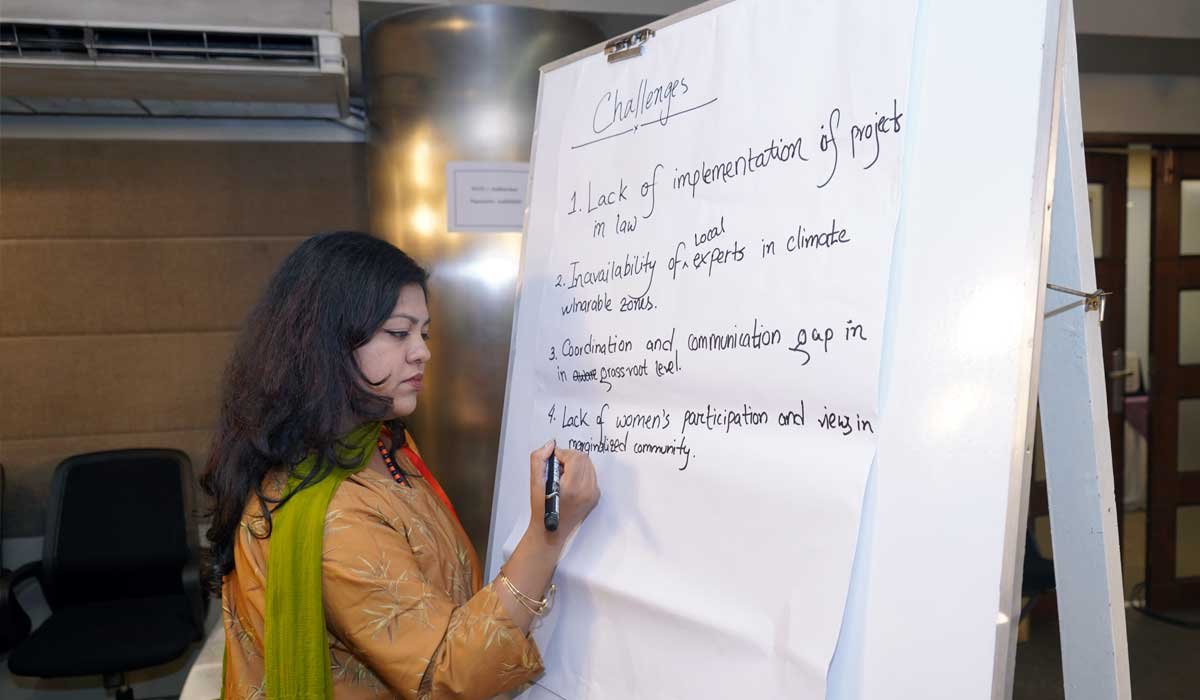
These exceptional papers were not only celebrated for their academic rigor but also for their potential to drive real-world solutions to the climate crisis. Each paper addressed a unique aspect of climate action, demonstrating the crucial role of research and innovation in shaping a sustainable and resilient future.
Day three focused on youth engagement through a series of policy workshops and dialogues. Young participants discussed topics such as climate budgeting, fiscal frameworks, and adaptation planning tailored to different climatic zones. The sessions aimed to strengthen youth leadership in shaping inclusive, accountable, and evidence-based climate policy.
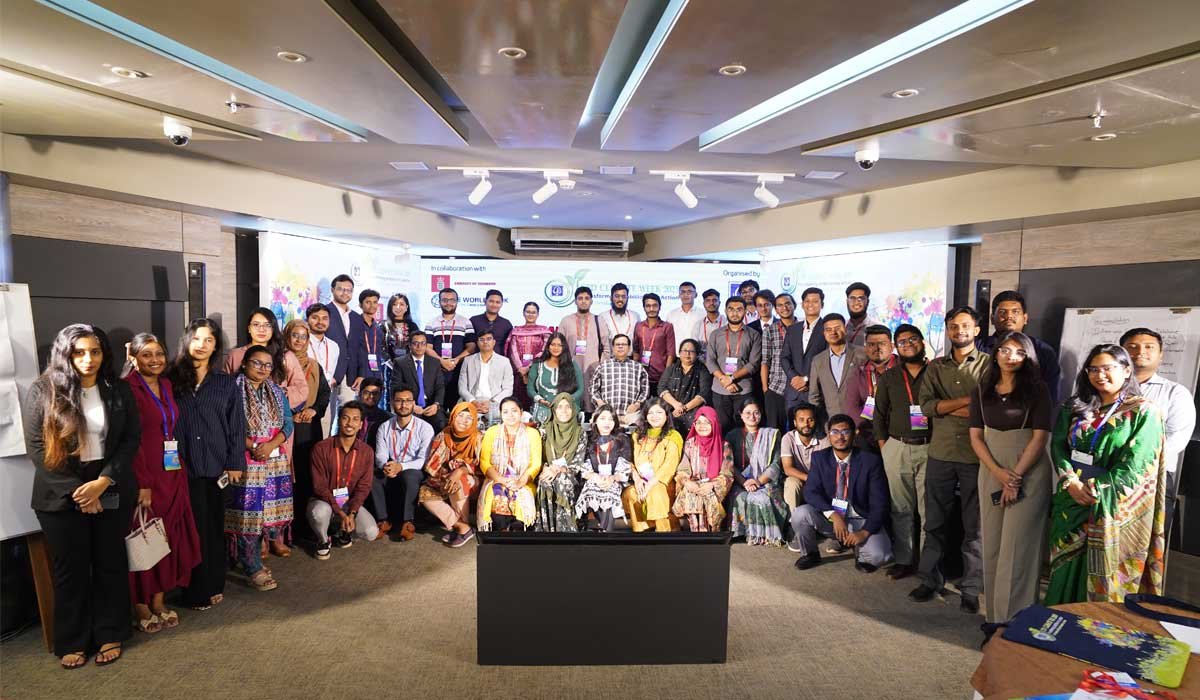
The final day featured a Climate Olympiad, a Policy Case Competition, and a Green Project Exhibition, with exciting competition and innovative ideas from students and young innovators.
In the Climate Olympiad, Ms Humayra Anisha Hossain Tonni claimed first place, followed by Mr Fahim Muntasir in second and Mr BM. Istiak Ahmed Chamon in third. These participants showcased exceptional knowledge and problem-solving skills in tackling climate challenges.
The Climate Policy Case Competition saw Team TBS, with Ms Naoshin Sharmin, Mr Nurshalin Islam Shifat, and Mr Naimul Islam, take first place. Team 3 Zero, featuring Mr Md. Sadik Jamal Kowshik, Mr Amlan Deb Nath, and Mr Md. Tanvir Alam, secured second place, presenting well-researched and practical policy solutions for climate action.
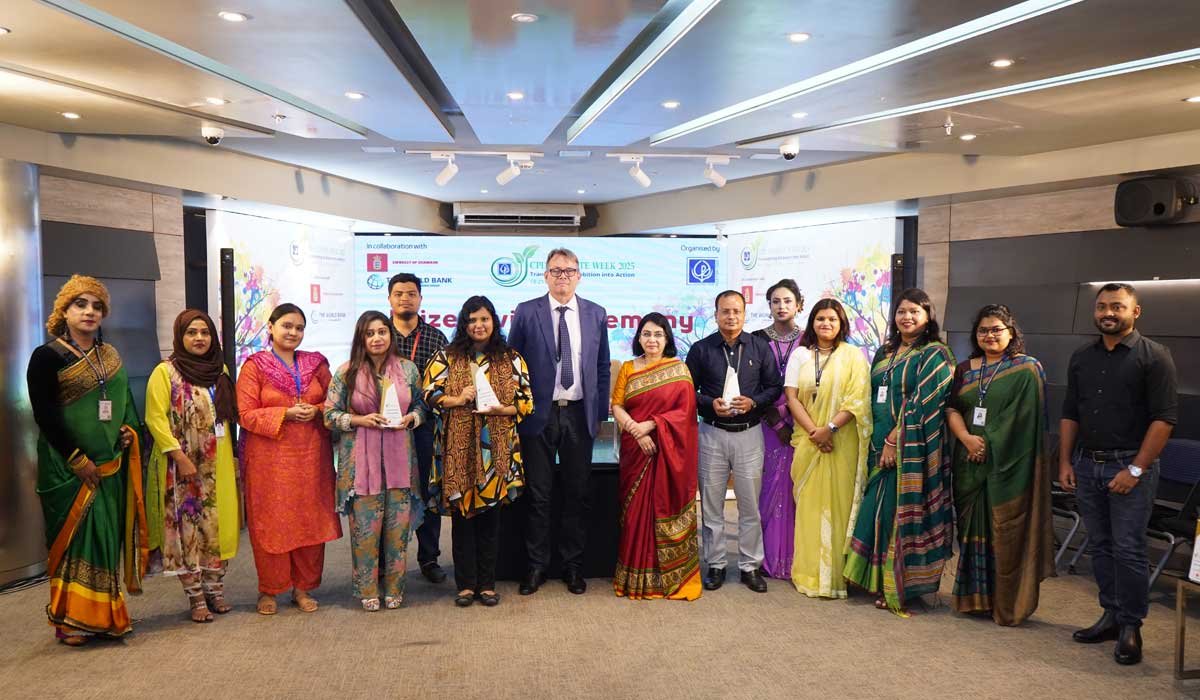
The Green Project Showcase highlighted impressive sustainability efforts. The first-place project, Eco-Craft: Repurposing Tetra Pak and Plastic Bottle Waste for Climate Resilience in Urban Slums of Bangladesh, presented by Hashimukh Somaj Kallayan Songstha, was a standout for its innovative approach to waste management. The second-place award went to the BCEP Project from Shakti Foundation, while the third place was awarded to Ecolery: Edible Cutlery for a Sustainable Future, presented by Ecolery, which offered an inventive solution to reducing plastic waste.
By combining high-level discussions, youth-led initiatives, and innovation showcases, CPD Climate Week 2025 successfully connected policy, research, and action. As the very first Climate Week held in Bangladesh, the event aimed to strengthen the country’s leadership in resilience and inspire collective commitment towards a more sustainable and equitable climate future.


